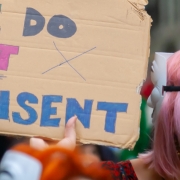Only Capitalism qua Capitalism Saves the Planet From the Slavery’s Equality
The Declaration of Independence was signed and executed during an armed revolt against a despotic monarch. The document listed numerous transgressions by the King against the natural rights of his citizens, leading to the de facto forfeiture of his sovereignty. While the member States were to exercise self-government under the Articles of Confederation, that failed after a few years, and a federal-style republic was formed under the Constitution.
A primary reason for the revolt was religious freedom, and their spirit of independence, self-reliance, and industry eventually created a vibrant middle class of shop keepers, lawyers, doctors, ministers, industrialists, and bureaucrats. Social mobility was finally possible, and lower class laborers enjoyed a relatively higher standard of living.
With an advantageous geographic location for international trade, it became the wealthiest and scientifically advanced society in the world. Once a luxury reserved for elite aristocrats, leisure time became commonplace. Of course, this was the Dutch Golden Age of the 1600s and early 1700s. Coincidentally in 1683, having been falsely implicated in a plot to kill King Charles II, English philosopher John Locke exiled himself to Amsterdam for five years.
While there, Locke surrounded himself with the intellectual heirs to the rationalist philosophy of Baruch Spinoza. Despite its conflicts with Locke’s empiricism, he was impressed with Spinoza’s political and religious tolerance and the separation of church and state. As events would unfold 45 years later, François-Marie Arouet (aka Voltaire) also escaped persecution, but this time from the French monarchy’s government elites.
Voltaire landed in London because the Glorious Revolution, led by English parliamentarians and an invading Dutch fleet in 1688, had installed a constitutional monarchy. Upon his return to France in 1733, Voltaire published his Letters Concerning the English Nation and reported,
Go to the London Stock Exchange, you will see representatives of all nations gathered for the service of mankind. Jew, Mohammedan, and Christian deal with each other as if they were of the same religion, and give the name of infidel only to those who go bankrupt.
As Libertarian historian Wendy McElroy explains, Voltaire’s insight on the economic way over the political way . . .
Was nothing short of revolutionary. It reversed the accepted policies on how to create a harmonious society. Traditionally, nations enforce a system of values to ensure peace. Voltaire argued the opposite. Diversity and freedom created a thriving and peaceful society.
This evolution of ideas led to a revolution of the economic mind in 1776; the year when Adam Smith published his classic work, An Inquiry into the Nature and Causes of the Wealth of Nations, and met Benjamin Franklin. Eleven years later, Franklin co-founded and was elected president of the Pennsylvania Society for the Abolition of Slavery. In 1789, it issued a statement that read in part,
The unhappy man, who has long been treated as a brute animal, presents a serious duty incumbent on us, to instruct, to advise, to promote in them habits of industry, to furnish them with employments, and to procure their children an education.
Here, Franklin had identified a solution to a major obstacle to the abolition of slavery. The Revolutionary Mind was fearful of violent decivilization that would destroy the American experiment. If so, that would prevent the ultimate goal of self-ownership for all Americans.
Yet, to fully comprehend the nature of the institution of slavery; one that was nearly universal and continues in fascist societies elsewhere in the world today, it is essential to give it context. As Brad Thompson explains about 18th century America in Chapter 5 of his 2019 book America’s Revolutionary Mind, titled Equality and Slavery,
In a monarchical society defined by inequality, statuses, and rank orders of dependency and unfreedom, slavery was distinguished by being only the most degraded status.
In feudal societies, submission was nearly universal. Even in America today, the political elites who think in quantities, who count things in a static world and project, are determined to manufacture degraded status for nearly any identity group. This they call empowerment! Yet, it is unthinkable for today’s progressives to welcome a dynamic world, or to let their dependents in on the secret that they can own their productive happiness. That would render government elites irrelevant.
The unknown ideal, the ultimate solution to social domination, and its horrid extreme – slavery – is the self-evident morality of capitalism. It is the socio-economic system that bans force from all voluntary, human interaction. Simply working backward, free markets are rooted in rational self-interest as proven by Adam Smith and Jean-Baptiste Say, their foundation is the morally derived principle of rights as proven by John Locke and John Adams, and their axiomatic truth is in the primacy of existence as proven by Francis Bacon and Aristotle.
Freedom from force is the radical challenge that America’s Founders had accepted, that today’s social justice warriors refuse to accept, and Thompson frames succinctly,
The brutality of slavery was more easily denounced than overcome. A self-evident contradiction did not provide a self-evident solution to the problem.
Allergic to real solutions, today’s politicians pander with nonsense like unity and public service, and all of it is as un-American as borscht. What unites Americans is the spirit of independence that is fueled by personal integrity. In other words, self-ownership, productiveness, and the ultimate role of trading values produced by free individuals. Life, liberty, and the pursuit of happiness is our highest moral principle.
Yet today’s economic debate is dominated by progressive economic collectivism vs. conservative economic collectivism. The progressive side’s leaders include Saul Alinsky’s politics and John Keynes’s economics; the conservatives include William F. Buckley’s politics and Friedrich Hayek’s economics. Neither side acknowledges the morality of capitalism qua capitalism.
For Keynes, immoral “animal spirits” requires heavy government intrusion. For Hayek, amoral “spontaneous order” requires universal basic income. While Keynes’ is a demand-side construct that cruelly ignores the volitional, independent minds of the supply side, Hayek qualified his supply-side advocacy to Buckley in a 1977 television interview,
Because we are utilizing more information, more facts than anybody, the outcome for a particular individual is necessarily unpredictable. An outcome that is unpredictable and undesigned by anybody cannot be just.
When the collectivist solution of serving others for the undefinable common good or the consumer becomes a higher moral principle than independence, productiveness, and profit, then submission is inevitable.
It is self-evident that consumption destroys wealth, and that free markets do not reduce individual values to a common denominator like aggregate utility. Entrepreneurs design values, and it is the exceptional minority of producers, including free and industrious African-Americans, that lift a society to the level of their productive genius. This is Say’s Law of Markets, or as Thompson concludes,
The great achievement of the American Revolution was to launch forces that would lead over time to the reconciliation of moral theory and moral practice













